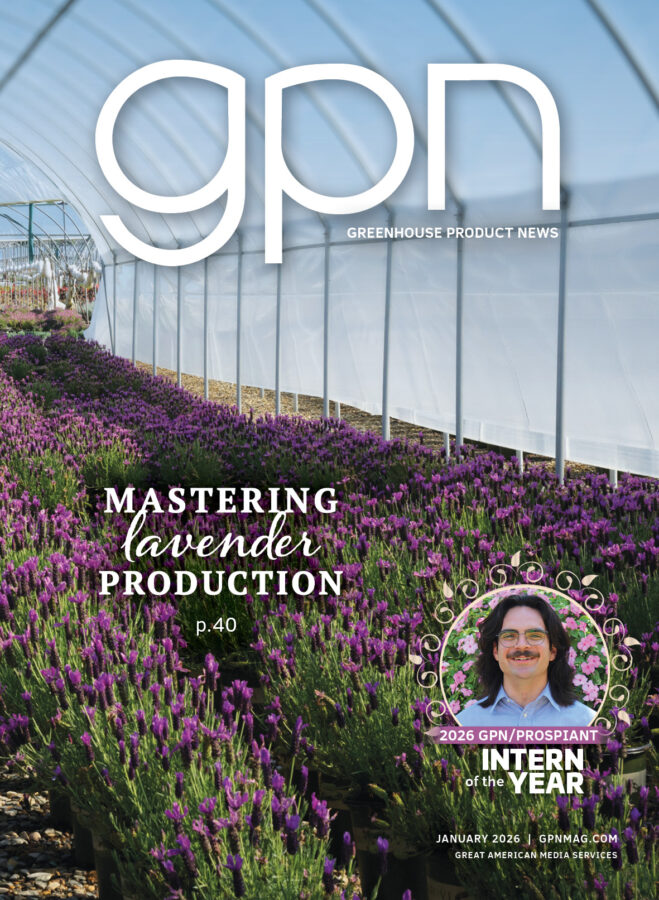
Petal to the Metal — Paul Jemison 2009
Always eager to take the road less traveled and go outside of his comfort zone, Paul Jemison is carving his own path in this fast-changing industry. And all signs point to success.
Paul Jemison’s path to horticulture wasn’t exactly traditional. Although Jemison, 21, grew up in a small town in central Kansas, it was by no means farm country. He wasn’t a gardener. The private high school he attended didn’t offer a single agriculture course. Still, by the time he enrolled in Kansas State University in Manhattan, Kan., the self-described “city guy,” who liked to play soccer and ultimate Frisbee and go on impromptu road trips, knew he wanted a major that allowed him the freedom to spend time outdoors. “What drove me toward horticulture was my personality. I liked being outdoors, didn’t like being confined to smaller spaces. I like to work with my hands,” Jemison says.
Still not quite sure what career would be the best fit for him, he contemplated forestry and even becoming a zoo horticulturist before settling on a horticulture major with a specialization in greenhouse management. After visiting some greenhouses, Jemison quickly felt both at ease and inspired: “I liked being in them and thinking that I can grow literally anything in this environment, because I can control it,” he says. “I can grow tropical plants in the middle of Kansas if I wanted to that’s pretty amazing.”
And although he was at a disadvantage compared to most of his classmates, many of whom grew up immersed in horticulture, an exhilarating four-month internship at Molbak’s Greenhouse and Nursery outside of Seattle erased any lingering doubt. “[Before this], I was pretty behind most of my peers. I literally had zero experience. It’s been a long road,” says Jemison, now in his junior year. But now? “I’m positive this is what I want to do,” he says.
Going Outside Comfort Zone
As unconventional as it’s been, the 2008 GPN/Nexus Intern of the Year recipient’s professional journey has been accelerated by Jemison’s enthusiasm and a willingness to take risks and explore new territory. Even though completing an internship is a graduation requirement at his college, Jemison didn’t view it as a chore: “I approached it as an opportunity. I was eager to learn.”
His internship at the midsize grower/retailer functioned as a crash-course in all things horticulture, from propagation to sales. “I learned an incredible amount just by doing something different each week,” he says. “It was an amazing experience all around.” And along the way, the boy who had never lived outside of Kansas learned a thing or two about himself and the big wide world outside of the Midwest.
“A tremendous dimension of really great internships is that they allow students great personal growth along with professional growth,” says Kimberly Williams, professor of floriculture at Kansas State and Jemison’s adviser. “Because he was willing to take a risk and go outside of his comfort zone and live half a continent away, far from everything he was familiar with, he had experiences that really made him more confident as a person and certainly as a grower and horticulturist.”
The well-rounded internship program was structured so that each month Jemison was immersed in a different part of the business: February focused on propagation, March on production, April on assembly and May on retail. This structure challenged Jemison to develop different skills and a broader understanding of the big picture. “My time was split up being a jack-of-all-trades. That was the best part of the internship: I never got bored,” he says. “Each day was different; it was just a lot of fun.”
Mark Bradbury, general manager of Molbak’s Plant Farm, says Jemison “was fantastic from day one. He wanted to learn everything about all aspects of the business.”
New Perspectives
Those four months in the Pacific Northwest which Jemison quickly fell in love with were eye opening for Jemison in several ways. Professionally, he was exposed to a drastically different geography and climate and had to learn to adapt what he’d learned in Kansas to the lush region’s unique characteristics. “With the different growing climate, I was amazed at the sheer variety of the plants they had up there. In Kansas, it just gets too hot here in the summer, and a lot of plants will fry. When I got up there, I was like, ‘Mark, what is this plant? I’ve never seen anything like this before,'” he recalls. “It was amazing from a grower’s standpoint to see all that they can grow up there.”
The internship also opened Jemison’s eyes to the diversity of the greenhouse industry. During his time at Molbak’s, he worked closely every day with people from various cultures ranging from different Central American countries to Mexico, Cambodia and even Bulgaria and hear their stories. As Jemison writes in his essay: “The greenhouse industry, now more than ever, is one of the most diverse workplaces anyone can experience These people come to work with great attitudes; they worked hard every day, which rubbed off on me and helped me grow as a person.”
Jemison wants to learn Spanish, after encountering some big language barriers and witnessing the ease with which his mentor, Mark Bradbury, communicated with his employees as a fluent speaker. “The current greenhouse manager knows a little bit of Spanish but mostly relies on team leaders, native Spanish speakers, to communicate with the workers. I saw the difference when Mark would come talk to them.”
Crash Course in Management
The last week of March, Jemison was put in charge of the production line in the midst of the busiest part of the season. This experience tested Jemison’s managerial skills and ability to stay cool under intense pressure. “When I first got there, [Mark] mentioned that I would be leading the production line eventually. I immediately thought, ‘Uh-oh,'” he says. “This is a business. If you cause them to lose money, you’ll be in big trouble.”
The week was Jemison’s most stressful experience to date, he says. At first, some of the workers were upset with Jemison because they thought he was replacing their team leader, and refused to listen to him. “It was a big, big mess,” he says. And just when he finally was able to smooth things out with the workers, an important piece of machinery would break, and he was thrust back into stress mode: “I barely knew how to operate it, let alone fix it. I would get sidetracked and focused on fixing that, and didn’t make sure the others kept working.”
It was rough, but Jemison refused to give up and gained more confidence in himself as a grower and manager. “Looking back, I’m not quite sure how I made it through the week. But I’m glad I went through that to let me know what I had to do to be a better manager.”
The Business of Growing
Jemison’s internship in Washington coincided with a particularly late spring in the region, complete with snow showers in April. He witnessed many businesses flail at the whims of Mother Nature: “A lot of businesses went down. It was just a freak occurrence, but that freak occurrence can take apart your business. A lot of growers in that area had to shut down.”
From this unfortunate experience, Jemison learned to look at the business as, well, a business. During the final month of his internship, Jemison was exposed to the very different world of retail. He participated in weekly business and marketing meetings that gave him insight into the crucial sales side of the business. “Before that point, I just focused on growing,” he says. Critical questions arose during those meetings: “How much money is this costing us? Do we have to make a decision to dump this?” he says. “It gave me a whole new perspective.”
Navigating New Terrains
According to Jemison, success in this field demands close attention to emerging trends, and constantly reinventing the status quo: “The No. 1 thing is new ideas. That’s exactly how you grow your industry new ideas and new perspectives.”
Although the future of the industry, currently in a state of flux, will undoubtedly present challenges, Jemison just sees it as another chance to take the road less traveled. In this case, that road seems to lead straight to a more sustainable tomorrow. “With our economy, a lot of people are afraid; they are hanging on to their money. They’re going to be less apt to buy a commodity. Right now, that’s our biggest challenge,” Jemison says. But amid the uncertainties and chaos, he sees an upside: “A huge movement toward sustainability. You can see it with cars, food, everything. There’s a huge potential for that market to be tapped as well; we just have to [get through] this rough time.”
In fact, Jemison is already ahead of the game. He’s currently working on an organic poinsettia experiment at Kansas State University. His time in Seattle, an area heavily focused on “going green,” reaffirmed his view that sustainable is the future.
Green Light
On track to graduate in fall 2009, Jemison is eagerly looking toward that future. His dream job is to step right into a head grower position in a midsize operation similar to Molbak’s preferably in the Pacific Northwest. But he would gladly take a challenging grower apprenticeship that would allow him to keep broadening his skills and horizons, such as one that would mix growing with the opportunity to go on buying trips and evaluate different cultivars. Whatever direction he takes, he looks forward to the day when he can mentor an intern and nurture that excitement and appreciation for the industry, much like the Molbak’s internship did for him.
The shaky economy is hitting everyone hard, and the greenhouse industry is no exception. But in economically challenging times, it’s even more important for businesses to invest in the youth through internship programs, says Mark Bradbury. “I’ve been around for 25 years. I’m watching the generation that’s in school now there are fewer and fewer people who want to join the industry,” he says. “The more we connect with the younger generation, the better chance we have of improving and preserving our future in the industry.”
As for one particular member of the younger generation, Bradbury predicts the following: “I will probably be working for Paul some day. He’s got a very bright future; he will be a leader in the industry.”
The marketplace he’s about to enter is indeed shaky, and the field he loves so much is fast evolving, but Jemison is always up for impromptu rides, especially if they lead you down new roads. “You have to have confidence in yourself, take your punches with this economy just keep going and ride it out,” Jemison says.
SIDEBAR
The GPN/Nexus Intern Scholarship
Recognizing the importance of growing our industry, GPN and Nexus Corporation partnered to offer a scholarship to a horticulture student who has made the commitment to this industry by undertaking an internship. Now in its 10th year, the GPN/Nexus Intern Scholarship has acknowledged students across the country who continued on to work at some of the best-respected greenhouses in the industry.
Do you know a student who just completed an internship and deserves recognition and a cash reward? If you do, contact Tim Hodson, GPN editorial director, at thodson@sgcmail.com for more information on the GPN/Nexus scholarship program.
Connecting with the Younger Generation
As a twentysomething, Jemison represents the generation our industry is busily courting without much success so far. Getting young people excited about plants means that the industry will need to get creative and not be afraid to mix things up. Marketing is part of the answer, he says. “One thing that has to change is the look. You’ve really got to change how you market to the younger generation.” One way to do this is to go online if you aren’t already, you’re too late, he says.
Younger people also have less time and attention, he says, and they want to get your message quickly and move on. There’s the real challenge: “How are you going to market to the younger people with such short attention spans?” The industry needs to figure out how to convey their messages quickly and effectively to a target base that bores quickly but is always hungry for instant gratification.
Applauding the Risk Takers
Internships offer invaluable learning experiences, far beyond what can be obtain in the classroom, to students willing to take a chance. In fact, says Cheryl Longtin, chairman and CEO of Nexus Corporation, an effective internship program “offers the chance to become a risk taker. Some people approach their internships and, subsequently, jobs in safe ways. Not Paul.”
Internships also provide students with more role models to guide and cheer them on their professional journey. “Students have to make that change from working for a grade to making a profit in a world filled with pitfalls they never knew existed,” she says.
In these challenging economic times and period of transformation for the industry, Nexus continues to stand behind this award and all that it represents. Learning about the accomplishments of past Intern of the Year award recipients fills Nexus with pride and hope for the future: “We will continue to support this award and all that it stands for,” Longtin says.








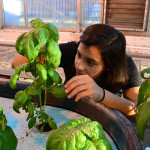
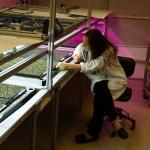
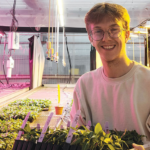


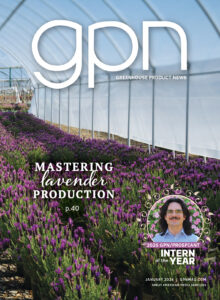
 Video Library
Video Library 

















